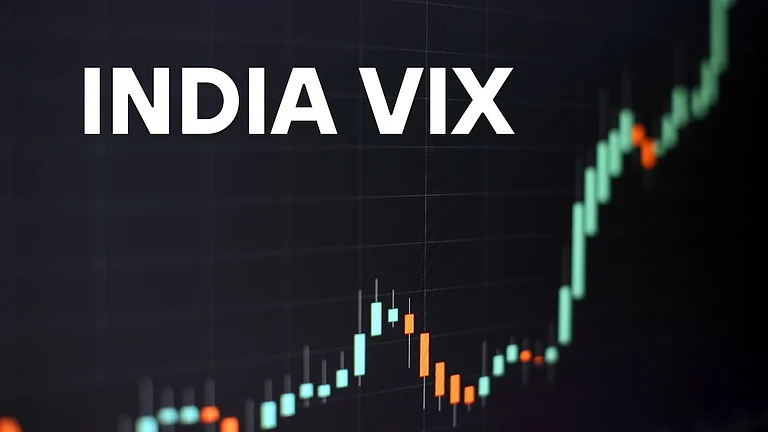D-Street has maintained a cautious stance through the past four trading sessions amid the uncertainty triggered by the India-Pakistan conflict.
India-Pak Tension: What Investors Can Do To Ride Out Market Volatility
Amid uncertainty in the equity market over the India-Pakistan tension, here are a few things investors could consider to ride out the market volatility, according to experts
While a ceasefire has now been announced, concerns still linger over what might come next. Investors are unsure if the prevailing uncertainty will continue to weigh on India’s equity markets and thus, whether they should rebalance their portfolio or remain invested and ride out the volatility
The Conflict
The conflicts started when Pakistan-backed terrorists killed 26 tourists in Pahalgam, Kashmir on April 22, 2025.
In response, India launched military strikes under Operation Sindoor in the intervening night of May 6 and May 7, 2025, carrying out precision strikes on nine terrorist hideouts across Pakistan and Pakistan-occupied Kashmir (PoK).
Post this, there have been several instances of shelling, firing, and deadly drone attacks between the two countries.
However, four days after the sharp escalation in cross-border tensions, a bilateral ceasefire understanding was reached on May 10, 2025, and both sides agreed to halt all the military actions.
However, Pakistan, despite the agreement, continued to engage in aggressive activities along the border hours after the ceasefire was announced, as Foreign Secretary Vikram Misri said in a press briefing.
India-Pakistan Tensions: What A Full-Blown War Might Mean
Manasvi Garg, a Securities and Exchange Board of India-registered investment advisor (Sebi RIA), CFA, and founder and CEO of Moneyvesta, said that a full-scale war between India and Pakistan would have profound economic repercussions for both nations.
He says: “India could experience heightened inflation and an increased fiscal deficit due to escalated defense spending and potential disruptions in trade and supply chains. The 1999 Kargil War, fought between May and July 1999 was one of the last major conflicts between India and Pakistan. Initially, there was panic in the stock market, with the Nifty falling by 8.3 per cent in the month before the war. However, the market rebounded strongly during the conflict, delivering a return of 36.6 per cent, and continued to perform well with a 29.4 per cent return in the year following the war.”
He added that on the macroeconomic front, inflation rose to 5.9 per cent in FY1999 and then eased to 3.3 per cent in FY2000.
“Despite the conflict, GDP growth remained robust at 6.18 per cent in FY1999 and increased further to 8.85 per cent in FY2000. However, the fiscal deficit expanded significantly, exceeding 9 per cent, mainly due to increased defense expenditure and reduced revenue collections,” he adds.
India-Pakistan War: How FIIs Might Respond
Bajaj Broking Research told Outlook Money that foreign institutional investors (FIIs) typically react to geopolitical instability with caution, often shifting funds to safer assets or diversifying their portfolios.
“If tensions between India and Pakistan escalate, FIIs may adopt a wait-and-watch approach, reducing exposure to equities, especially in sectors sensitive to geopolitical risks, such as defense and energy. However, India’s strong macroeconomic fundamentals and policy measures could mitigate significant capital flight,” Bajaj Broking said.
What Should Investors Do
Investor anxiety has been brewing since the Pahalgam terrorist attack, April 22, 2025, driving the India VIX up by 42 per cent.
The India VIX, also known as fear index, signals increased fear or uncertainty among investors. A spiking VIX value suggests that investors expect more volatility in the near term, while a falling VIX typically indicates a calmer, more confident market environment.
Amid this spike in volatility, market experts are urging investors to stay calm and avoid knee-jerk reactions.
According to Bajaj Broking Research, retail investors should avoid impulsive decisions based on short-term geopolitical events.
“Historically, market downturns due to geopolitical tensions have been temporary. Investors with a long-term horizon may find opportunities in fundamentally strong stocks at attractive valuations. Exiting entirely may not be prudent unless specific financial goals or risk assessments suggest otherwise,” the firm added.
Best Investment Strategies During India-Pakistan Conflict
Bajaj Broking Research has recommended investors to diversify their holdings across sectors to mitigate risk, and focus on large-cap, fundamentally strong companies with low debt and stable earnings. The firm added that defensive sectors like pharma, consumer goods, and utilities usually often remain resilient during volatility.
It has advised investors to continue their systematic investment plans (SIPs), as this can average costs during market fluctuations. Lastly, the firm suggested investors to hold some cash to capitalise on future opportunities if the market dips.
Garg has recommended investors to focus on companies with strong balance sheets, low debt, and diversified revenue streams. To reduce risk, he has advised allocating some capital to government securities and high-credit-quality corporate debt.
“These instruments offer capital preservation and predictable income in volatile periods. In times of geopolitical turmoil, the core investment strategy remains unchanged: diversification across asset classes to manage risk and preserve wealth,” he adds.
Garg also recommended investing a portion of one’s capital in gold or silver, which have historically served as hedges against inflation, currency depreciation, and geopolitical uncertainty.
Further, he said, investors may also consider getting exposure to international equities or exchange traded funds (ETFs) to reduce country-specific geopolitical risk and benefit from currency diversification.

